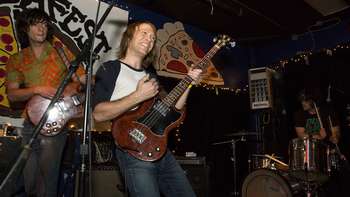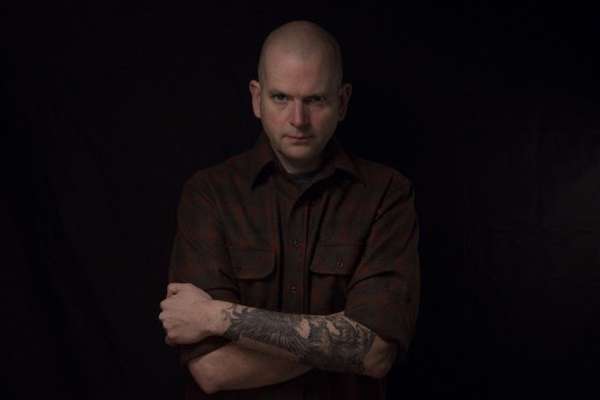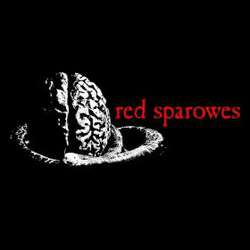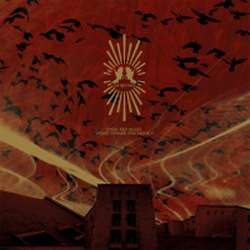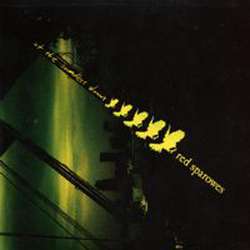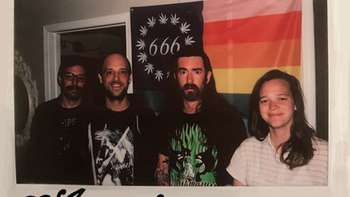Scene Point Blank: First off, why don't you introduce yourselves and your respective roles in the band?
Josh: Josh Graham, I play guitar.
Greg: Greg Burns, I play bass and pedal steel.
Scene Point Blank: Obviously there was some history between several of the band members prior to the forming of the group, but what exactly are the origins of Red Sparowes? How did it go from acquaintances to playing in a band together?
Greg: You know, Jeff Caxide, the bass player for Isis, and I grew up pretty close together and our bands as kids would play shows together. And Josh had met those guys [Isis] through Neurosis stuff, so he knew them. We all kind of ended up in LA around the same time. Started going out and hanging out and we realized we had a lot in common, and we thought it would be fun to try playing together. It was never this idea to start a band, we just tried playing together and it came together really well so we just kept going with that.
Scene Point Blank: Going along with that topic, since you had the members of fairly well known bands, did you feel that there were certain expectations to live up to? Did you feel you had to distinguish yourselves from those bands?
Greg: Yeah, I'll just speak for myself. I felt like it was important to distinguish ourselves from those bands. Because a lot of people expected us to sound exactly like that, or at least a lot like that. And obviously with the members that play in Isis and Josh's work with Neurosis, there is going to be a lot of similarities. For me, and I think for everyone, it was a chance to express something different musically that wouldn't quite belong to those bands. At the same time, anyone that heard those bands is going to have expectations. But the people that we talk to tend to get what we're trying to do, which is a little more textural and melodic. When we go into practice, it's not like we talk about doing something different.
Josh: I agree with that. I never personally though about trying to live up to Isis or Neurosis, I just thought it was our own thing. I don't even think we realized what we had until we started getting responses from our friends.
Greg: That was the big thing, we really didn't have any expectations at all. Again it wasn't like we decided to start a band, we just started writing and we ended up writing these songs that we thought sounded different. There was no goal, so we only started dealing with those kinds of questions when people would ask us at shows.
Scene Point Blank: This question is for Josh. I don't know if you've had any previous projects prior to Red Sparowes. With all your work handling the visuals in Neurosis, what inspired you to make an attempt at the musical sides of things?
Josh: I've played music since I was fifteen and was in a few bands. I grew up in Arizona where it was real hard to keep things together. So I left and concentrated for about five years on the visual sides of things like directing videos, which is how I make my living. And LA is not really the best place for finding musicians for something that isn't Top 40 or metal. But yeah, we all met each other and it was the first time I actually met anyone I wanted to play with. I tried a few times before, but it just didn't get very far.
Scene Point Blank: So with everyone being in different bands, getting together must be quite a task. How do you guys coordinate things with such hectic schedules?
Josh: Well it's easy right now. Neurosis doesn't tour very much., so the main band we have to schedule with right now is Isis. We're good about working with each other and take everything as it comes. And it's working out quite well for us right now.
Scene Point Blank: There's no vocals on the album; was it a conscious decision from the start to not have any vocals?
Greg: I think because we just started playing together it wasn't a conscious decision. There was a point when we recorded our demo that we played around with some vocal stuff. But in the end we all sat down and listened to it and thought that it stood on its own without vocals. We're not cutting ourselves off from vocals, obviously we'll never have a front man, but we may play around with that stuff in the future. Up until now every song that we've written we've felt like we've been able to express what we want through the music.
Scene Point Blank: I think a lot of that has to do with the vast amount of textures and layers. There's a lot going on.
Greg: Yah, there is a lot. We meet people that are used to certain formats, like people I work with or who haven't been around that kind of stuff. But usually when they hear it they understand what we're doing. Because it would be over the top with vocals and we'd really have to change the way did things, especially at this point.
Josh: But we do want to make a record that has different guest vocalists for each song, but that will be sort of its own entity.
Greg: And when we do that, I'm sure we'll keep that in mind when we're writing the songs. But it will be very different for us. It'll be a new way of writing.
Josh: And that will be two, maybe three records for now.
Scene Point Blank: That provides a nice segue to the next question. The band has been playing some new songs on this tour. How to they compare to the other songs on the LP?
Greg: I think they're more cohesive and we're getting better at writing. It's much for interesting. It's cool to get the two new members, Dave and Andy, involved and we really like what they've brought to the table. While it totally retains our sound, it is naturally progressing.
Scene Point Blank: At the Soundless Dawn is a concept album. What can you tell us about how the idea came up? Was it always your plan to release a concept album or was it an afterthought?
Josh: It was after. We had all the songs done and some of the segways kind of fit a little bit into the idea. Cliff actually had the idea of arranging the words of the song titles into a paragraph. I just did a bunch of research and found stuff we all sort of identified with and fit with the band name. So that added a lyrical component to the songs without actually having lyrics, which is pretty organic. So yeah, we were never said â??We're going to have a concept album.â?
Scene Point Blank: â??A Brief Moment Of Clarity Broke Through The Deafening Hum But It Was Too Lateâ? has a fairly distinct style as compared to the rest of the album. It's a little more upbeat than the others. Just curious if there is a particular reason for the difference? Was it a newer song than the others?
Greg: It was the last song that we wrote.
Josh: No.
Greg: It's [Codename song-title], right?
Josh: No. Haha. We have different names for songs.
Greg: It was on the demo, right?
Josh: No. This is Jeff's song. Haha. We don't even know.
Greg: Oh yeah, that was one of the later ones. It was in a different key, or I should say, a different mode. I think that helps set it apart. It does sound more upbeat. As far as the songwriting, a lot of the time someone will bring in a part and we'll build off of that. We'll just kind of put things together and see what develops. That song in particular was a song that Jeff wrote a song on bass and it just took a really different direction than the other songs.
Josh: It was kind of cool to have something that was short and not brooding. It was totally different and provides a little bit of contrast for the record.
Greg: And I think even when we were writing it, we were conscious to the fact that it would be good to play around with different feelings and emotions in the music. And obviously it was going to be one of the songs. And while it doesn't really fit with our live shows, it works really well for the record.
Josh: I don't think we've ever played that song live.
Greg: You asked if that song was recorded later and it was. But that song definitely isn't very representational of our new material. On our new stuff, we've all learned to play together and write together. We've really developed our sound. It's a little hard to express, but it's definitely more mature and more interesting. Instead of having just one song on a record that has that different feeling, I think our new songs go through a lot of different and more complex musical emotions. Does that make sense?

